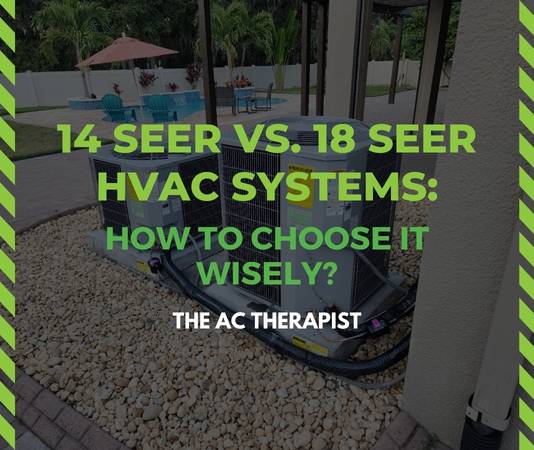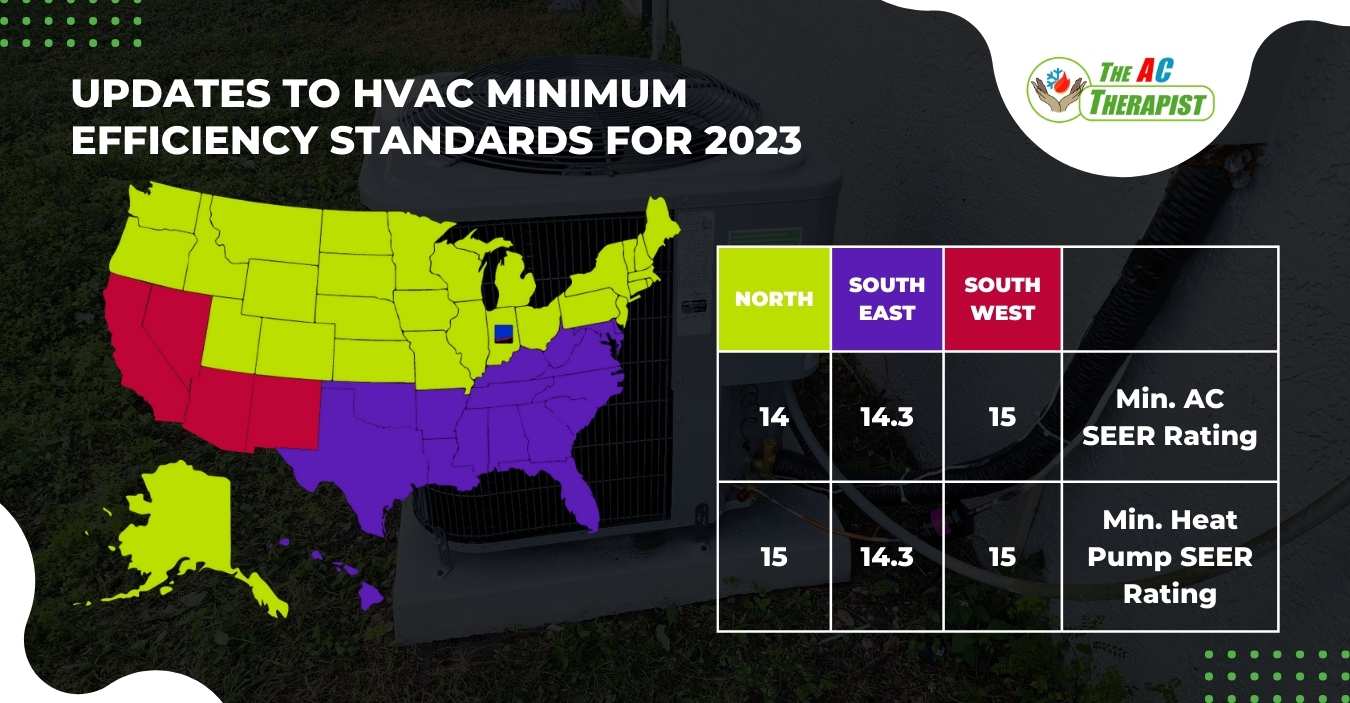14 SEER vs. 18 SEER HVAC Systems: Expert Tips for Wise Selection
When choosing a new air conditioning system for your home, it’s important to understand the different efficiency ratings available and how they can affect your energy usage and costs. You’ll come across two common ratings: 14 SEER (Seasonal Energy Efficiency Ratio) and 18 SEER. But what exactly do these ratings mean, and how do they compare?
Here’s a breakdown of the key differences between 14 SEER and 18 SEER HVAC systems:
Energy Efficiency
One of the main differences between these two ratings is energy efficiency. A higher SEER rating generally means the system is more efficient at converting energy into cooling power. In other words, a system with a higher SEER rating will use less energy to cool your home, which can result in lower energy bills.
- 14 SEER: This is the minimum efficiency rating required by law for new air conditioners sold in the United States. While it’s not the most energy-efficient rating available, it’s still a decent choice for those looking to save on energy costs.
- 18 SEER: This rating is considered to be among the highest in terms of energy efficiency. If you’re looking to maximize your energy savings, an 18 SEER system is a great choice.
Initial Cost
Another factor to consider when choosing between 14 SEER and 18 SEER systems is the initial cost. As you might expect, systems with higher SEER ratings tend to be more expensive upfront. However, lower energy bills may offset the higher initial cost in the long run.
- 14 SEER: Systems with this rating tend to be more affordable upfront, making them a good choice for those on a budget.
- 18 SEER: These systems may have a higher initial cost, but they can save you more money on energy bills in the long run.
Maintenance and Repairs
In addition to energy efficiency and initial cost, it’s also important to consider your HVAC system’s long-term maintenance and repair costs. Generally, systems with higher SEER ratings are more reliable and require less maintenance and repairs.
- 14 SEER: While these systems are generally reliable, they may require more frequent maintenance and repairs as they age.
- 18 SEER: These systems are more reliable and require less maintenance and repairs over time, saving you money in the long run.
What is SEER 2?
SEER2 is a protocol developed by the U.S. Department of Energy (DOE) in 2016 to rate the efficiency of air conditioning and heat pump systems. It will replace SEER (Seasonal Energy Efficiency Ratio) in 2023.
All new residential central air-conditioning and air-source heat pump systems sold in the United States will be required to meet new minimum energy efficiency standards beginning in 2023. The previous minimum energy efficiency standards for these equipment types went into effect in 2015. Standards were set for central HVAC systems sold in the northern and southern parts of the United States for the first time.
The new standards continue to set different cooling efficiency levels for air conditioners in the south. They also require an increase in the heating efficiency of all air-source heat pumps.
To accurately determine an HVAC system’s energy efficiency and cost savings, it’s important to consider factors beyond the SEER rating on the EnergyGuide sticker.
These include the quality of home insulation, the age of the current unit, the quality of the ductwork, the quality of window and door insulation, the size of the HVAC unit compared to the size of the home, and the frequency of routine maintenance.
These factors can all impact how much energy your HVAC system uses, regardless of whether you have a 14 or 16 SEER unit.
- Insulation quality in the home
- Current unit age
- Ductwork quality
- Quality of insulation in windows and doors
- Comparison of HVAC unit size to home size
- Frequency of regular maintenance
Which Air Conditioner Should I Choose?
When choosing between a 14 SEER and an 18 SEER system, you must consider your budget, energy usage goals, and long-term maintenance and repair needs. If you’re looking to save money upfront and don’t mind potentially higher energy bills in the long run, a 14 SEER system may be a good choice.
On the other hand, if you’re willing to invest more upfront in exchange for lower energy bills and fewer maintenance and repairs, an 18 SEER system is the better option.
Ultimately, the best air conditioner for you will depend on your specific HVAC needs and preferences. It’s important to research and work with a trusted HVAC professional to determine the best system for your home.
What are your cooling and heating needs?
Air conditioners and heat pumps come in single-stage, two-stage, and variable-stage systems based on fan speed.
A “stage” refers to the fan speed, for instance, a single-stage HVAC system operates at a fixed fan speed whenever it turns on or off.
Two-stage systems provide better comfort and improved efficiency, with benefits such as longer and gentler cooling, better temperature balance, improved humidity control, and lower electric bills. These systems operate more efficiently, providing additional benefits such as:
- Improved, more consistent cooling
- Enhanced temperature regulation
- Improved humidity management
- Reduced energy costs
Variable-stage HVAC systems offer the most efficient performance, as their motors can adjust to a range of speeds based on the desired temperature. They can provide some additional benefits, such as:
- These systems provide the most efficient HVAC performance, resulting in the lowest energy costs
- Even cooling throughout the home or business
- Enhanced humidity control
- Lower energy expenses
Consider your cooling needs and the benefits of different system types to choose the right HVAC system for your home.
How much does a new HVAC system cost?
Higher SEER ratings generally come with higher price tags. To determine your budget for an HVAC system, consider the SEER rating and the associated price tag.
You can also compare the purchase and installation costs to your estimated savings to better understand your budget. Here you can read more about How Much Does a New AC system cost in Florida.
HVAC professionals, such as those in The AC Therapist, can help you estimate your potential savings and make informed decisions about your purchase.
Save money on your HVAC system through the use of rebates.
One of the great advantages of having an efficient and modern HVAC unit is the rebates. Take advantage of rebates to save on your HVAC system. These can include tax and manufacturing rebates.

Conclusion
We hope this information helps you understand the differences between 14 SEER and 18 SEER HVAC systems and make an informed decision about.
Be sure that your property is ready for the new minimum requirement before 2022 so you can enjoy all its benefits.
The AC Therapist is here to help you!

We, at The AC Therapist, are prepared to accompany our customers in this process and offer them the best efficient units to save money while obtaining a high-efficiency system. Give us a call and get a free estimate!
Did you know that we also offer plumbing services? Our sister company Plumbing Therapist can help with your plumbing needs. Call the professionals at Plumbing Therapist.









